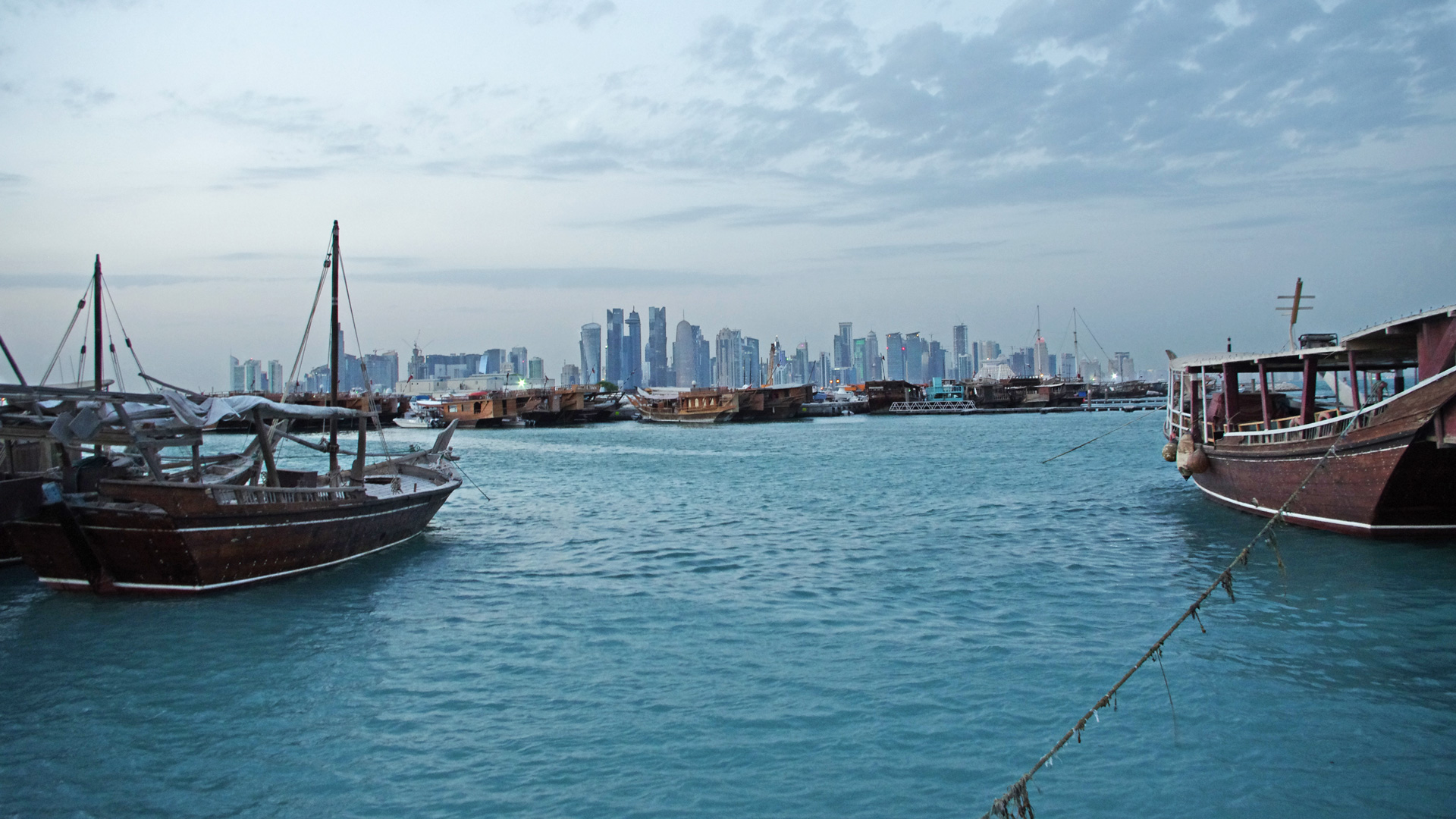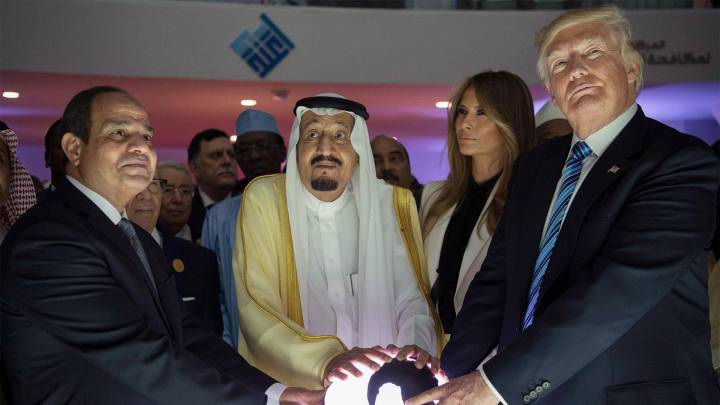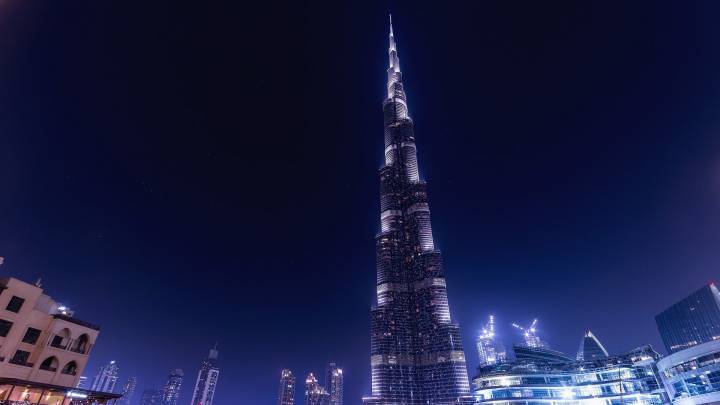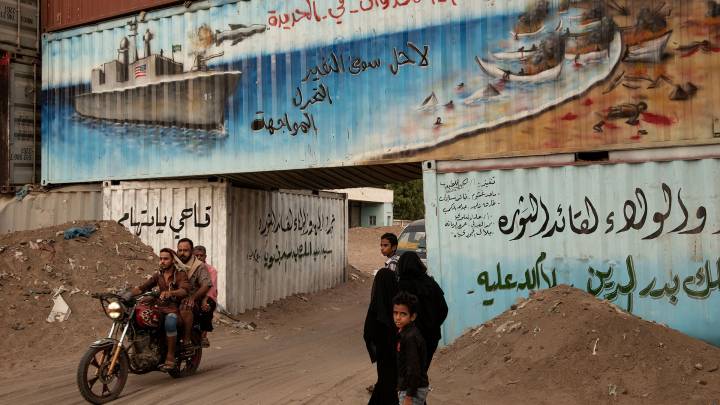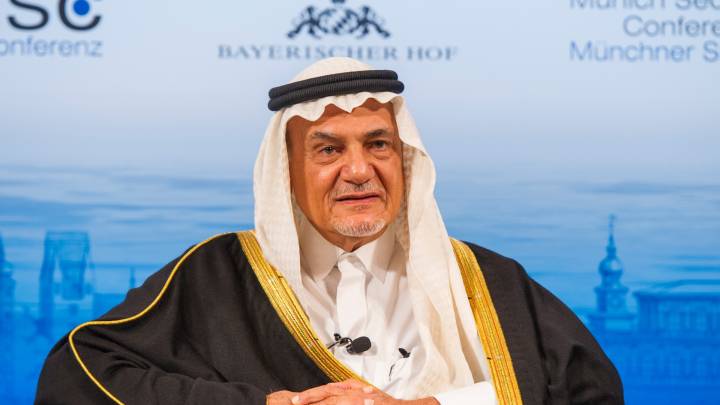They thought they could break tiny Qatar with bluster and pressure. But now as the Gulf crisis stretches on, Saudi Arabia and the United Arab Emirates may be doing more damage to themselves than to Qatar.
When Saudi Arabia and the United Arab Emirates (UAE) began an economic embargo on Qatar on June 5th, closing its land border and blocking access to neighbouring airspace, the calculation seemed to be that tiny Qatar would crumple quickly under the pressure. After all, the accusation by the two largest powers in the Gulf Cooperation Council (GCC) that Qatar was financially supporting terrorism was bound to elicit international sympathy and support.
What has been missed in Western capitals is that this is really an attempt by the Saudis and the Emiratis to put Qatar back into its box. But things haven’t gone to plan for Saudi Arabia and the UAE. On the one side, Qatar has stared them down and refused to buckle, a real David and Goliath story. But there have been other significant miscalculations by the Saudi-led bloc. It began with President Trump’s trip to Riyadh in May. The real estate developer turned president was wowed by the opulence of the royal palaces and seduced by the kingly reception and honours bestowed on him by the canny Saudis. His speech also gave broad support to the Sunni Arab states, ignoring human rights concerns in countries including Egypt and Saudi Arabia and marshalling them into a broad coalition against Islamic terrorism and Iran.
Yet what Saudi Arabia and the UAE saw was an opportunity to settle old grievances with Qatar, with the Trump administration still trying to get its footing and understand the variation of domestic politics and foreign policy among the GCC states. “You could say Donald Trump was played by the Emiratis and the Saudis,” says Karen Young, a senior resident scholar at the Arab Gulf States Institute in Washington (AGSIW). “They saw an opening and an opportunity to push forward in foreign policy directives that they held anyway, and they went for it.”
Hitching their wagon to the global fight against terrorism was a bid to internationalise their own personal grievances with Qatar, that stretch back quarter of a century. “This has been brewing since the previous emir, Hamad bin Khalifa Al Thani came to power in 1995,” says Young. “There were expectations that the new emir [who came to power in 2013] would be more malleable, and he proved really not to be, after the 2014 flare up of the same kind of tensions.”
Hamad al-Thani, who stepped aside in 2013, had pursued a deliberate policy during the 1990s to escape the long shadow of Saudi Arabia, a dominating influence after the first Gulf war, says Kristian Ulrichsen, a Middle East fellow at Rice University’s Baker Institute for Public Policy. “The Qataris saw what happened to Kuwait, they saw the vulnerability of small states surrounded by much larger neighbours, and they realised that to mitigate that vulnerability it was better to make yourself indispensable to a large number of external partners - in Qatar's case by natural gas contracts,” he says.
It wasn’t just gas. In a bid to gain regional influence al-Thani also founded Al Jazeera, the first satellite television network in the Arab world. Immensely successful, it’s proven a barb in the side of Arab rulers in Saudi, Egypt and elsewhere, accustomed to docile and subservient local media. It has also – much to the chagrin of the UAE – functioned as a pulpit for Muslim Brotherhood voices, especially through its Arabic programming.
More perspicacious was al-Thani’s decision to invite the Americans to grow their military presence in Qatar. After Saudi Arabia asked the US air force to leave the kingdom in 2003, their main operations shifted to Al Udeid Air Base, south west of Doha, the Qatari capital. Today, Qatar is home to the largest US air force base in the Middle East – the only one capable of landing its massive B-52 bombers – as well as the forward operations of CENTCOM, the fighting force responsible for fighting the wars in Iraq, Afghanistan, and now the operations against ISIS. In total more than 11,000 service men and women, along with essential logistics and communication infrastructure, are stationed in Qatar, and this presence, along with some forceful words from Washington, has likely been the biggest deterrent to Saudi tanks rolling across the border to ‘resolve’ the present crisis.
Qatar has also provided support for governments and groups through-out the region – including the Muslim Brotherhood and Hamas– that are seen by the UAE and Saudi as opposed to their own interests. The UAE in particular has an intense enmity for ‘political Islam’ and the potential threat it poses for the autocracies of the Gulf. (Qatar, for its part, has been eager to promote groups, such as the Muslim Brotherhood, agitating for political change across the region, while at home political parties, demonstrations and anything that threatens the status quo is banned). Qatar’s true crime then has been to pursue a foreign policy broadly different from the Gulf majors. “What has been missed in Western capitals is that this is really an attempt by the Saudis and the Emiratis to put Qatar back into its box,” says Ulrichsen.
More miscalculations
But what has blunted the appeal to the international community by the Saudis and Emiratis has been the obvious hypocrisy on display. Yes, Qatar has a poor record of funding terror organisations, particularly in Syria, but what business does Saudi Arabia have pointing fingers over this? The country is well known as a source of funding for terror organizations, from al-Qaeda to ISIS. A 2009 US Embassy cable declared that “donors in Saudi Arabia constitute the most significant source of funding to Sunni terrorist groups worldwide”; more recently it has been reported that the UK government is suppressing an investigation into funding of extremist groups in the UK that is embarrassing to the Saudis. Qatar’s public relation’s machine has also been careful to point out the respective nationalities of the 19 hijackers on 9/11 - 15 were Saudi, two were Emirati, while none were Qatari.
Meanwhile, while the UAE has claimed that Qatar is interfering in the internal affairs of other states with its support for the Muslim Brotherhood, here the emirates also have a questionable track record. “If the UAE wants to claim that Qatar is interfering in the internal affairs of regional states, it would do well to look at it’s own role in Libya, with [support for] Khalifa Haftar, which is against the government of the UN-backed political process, and which has caused a lot of friction over the last few years,” says Kristiansen. “There is a degree of double standards all around in this case. It’s a case of turning stones over without looking to see what's under your own.”
The Saudi-led bloc also seemingly miscalculated how Washington would react. While Trump initially took the bait, tweeting support for the embargo on Qatar and even seeming to want to take credit, other government institutions – the state and defence departments, and senators – soon asserted the rational interests of the United State’s by criticizing the actions against a key ally. Since then, Trump too has also fallen into line. The misread by Saudi and the UAE may have been of personnel, namely of the influence of Secretary of State Rex Tillerson and Secretary of Defense James Mattis, both of whom have a first-hand and even personal acquaintances with the strategic importance of Qatar. ExxonMobil is one of the largest and most-exposed United States-based investors in Qatar, says Ulrichsen, and Tillerson - the CEO of ExxonMobil until last year - is personally acquainted with the current emir, Tamim bin Hamad Al Thani, and his father. Mattis meanwhile is a former head of CENTCOM, which conducts its Middle East operations from its Qatar base. “You have in those two individuals the backbone of the commercial and military strategic partnership that Qatar and the United States have got together,” says Ulrichsen.
For its part Qatar has played canny game of public relations, painting itself as an unfair victim, appealing to international bodies to highlight the illegalities of some of the measures that have been taken, while choosing not to react in a punitive fashion, continuing to supply natural gas through the pipeline connected to UAE and Oman, says Allison Wood, a Dubai-based analyst at Control Risks, a risk management consultancy. “I think [Qatar] will continue to pursue that strategy over the coming weeks, and appeal to the international community, to try to draw people on to their side, and bolster their position as being 'bullied' by Saudi and the UAE,” says Wood.
Economic blowback
But perhaps the biggest miscalculation by the Saudi-led bloc was that Qatar would fold quickly. “The Saudis and Emiratis went in very hard at the beginning, hoping perhaps that 'shock and awe' would make Qatar capitulate, and of course the Qataris haven’t,” says Ulrichsen. “This is creating problems because I don’t know that Saudi Arabia and the UAE necessarily have a plan B.” Part of the problem may have been that the embargo did not have the desired impact. The closure of the Saudi border – and with it, the majority of Qatar’s food supply chain – prompted a rush on supermarkets, with television reports showing bare shelves after panic buying. But by the next day the shelves were restocked with essentials – chicken, milk and eggs – routed in from Turkey rather than Saudi Arabia. One Western ex-pat living in Qatar says he believes that the Qatar authorities had a contingency plan in place, and with the vast freight capacity of their national airline they were able to swing into action.
More broadly while the measures have created pressure on Qatar’s economy, as a whole they have not created the kind of economic strain that the coalition was hoping for believes Wood. “Exports of LNG have not been measurably impacted by these measures, and so in that sense, Qatar’s ability to generate revenue and particularly foreign currency has been uninterrupted, and that allows it to continue to take these mitigating measures to keep the rest of the economy running for the most part,” she says.
Now that Qatar has rejected the heavy-handed demands of Saudi Arabia and the UAE – demands that Ulrichsen describes as “so politically and economically intrusive that they would render Qatar little more than a client state” – the situation is a stalemate. Rhetoric on both sides has been so inflammatory it’s hard to see how they can reach a middle-ground compromise that will satisfy both sides, and allow the Saudis and Emiratis to save face. As for their announcement that they plan to introduce new measures, it’s hard to see what dry powder remains. Wood believes it will be difficult for the Saudi-led bloc to find ways to ratchet up economic pressure on Qatar which will be effective and not in violation of international laws or conventions, while simultaneously not having a substantial impact on their own economies. “If this conflict persists, there will increasingly be blowback on the neighbouring economies as well, due to the uncertainties of the environment and some of the measures that we have seen put in place,” she says.
All this comes at a time when the Arab Gulf states are grappling with fiscal constraints from the low oil prices, while also staring down a demographic curve that will need their economies to create a large number of jobs in the coming years for youth entering the job market – and many of these jobs will need to be created by foreign multinationals. The current dispute may also imperil many of the cohesive agendas that the GCC bloc has been working on, including defence, intelligence sharing, missile defence systems, economic mobility of citizens, and infrastructure such as the planned railway, says AGSIW’s Young. Lost opportunities for economic cohesion will also affect their economies. “If their governments are diverting their attention to other things, and lose sight of some of these employment and demographic issues, I think that will pose problems for these states over the long run,” says Wood.
Political capital
More immediate is the damage to the political standing of Saudi Arabia and the UAE. Impatience within the US State Department is building up, where the dispute is seen as a completely unnecessary diversion away from the real United States’ objectives in the Middle East, which are to fight ISIS and to combat Iran, says Ulrichsen. “The fight isn't between the Sunni Arabs and Iran, it's within the Sunni Arab camp. So there's a lot of impatience by the fact that in the month since the Riyadh summit it has basically been overtaken by this completely unnecessary row, which has deflected attention from the real issues,” says Ulrichsen. He sees a parallel between the Qatar dispute and Saudi’s war in Yemen, a military campaign they entered into hoping for quick victory, but which has since dragged on – wreaking devastating effects on the civilian population - with little sign that the Saudi’s have an exit plan.
The Yemen campaign has raised questions about the judgment of Mohammed bin Salman – last month announced as the new Saudi crown prince – who as the defence minister is the architect of the war. 32-year-old bin Salman, or MBS as he is known, is widely seen as rash and immature – Germany’s foreign intelligence agency, the BND, broke with protocol in 2015 to describe MBS as impulsive – the current imbroglio will raise further questions about whether the young prince is ready to wield the kingship of Saudi Arabia. It doesn’t help MBS that his move up the line of succession removed Muhammad bin Nayef, a figure who was popular in Washington and seen as immensely capable for his efforts on counter-terrorism over the past 15 years.
All of this leaves Saudi Arabia and the United Arab Emirates in a difficult position, in a corner they have backed themselves into through their own miscalculations. They can back down, which would leave them looking weak and ineffectual. Or they can tighten the screws of the embargo and try to win the public relation war, a move that risks burning political capital and further exasperating their allies, while damaging their own economic well-being. For all their military and economic muscle, it seems that Saudi Arabia and the UAE have been out-played by tiny – and still independent – Qatar.
With the dispute seemingly in a deadlock, the US Secretary of State is headed to Kuwait, the dispute’s mediator, to try and break the impasse. “While Saudi Arabia, the UAE, Bahrain and Egypt were able to take advantage of Trump to start the dispute with Qatar, it will be the US government, and notably Tillerson and the State Department, that will need to clean up the diplomatic mess,” says Young.
